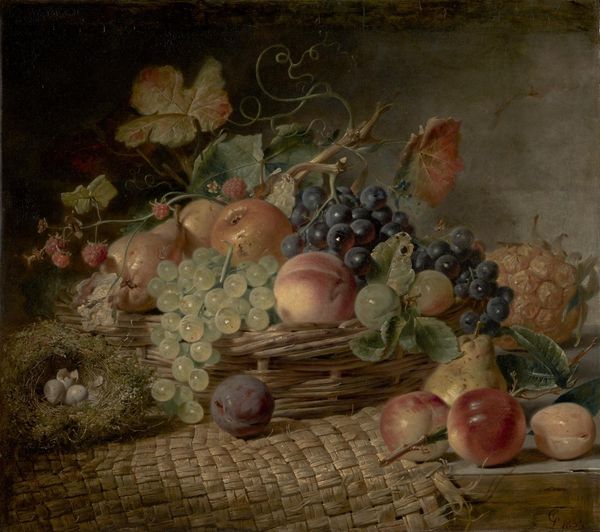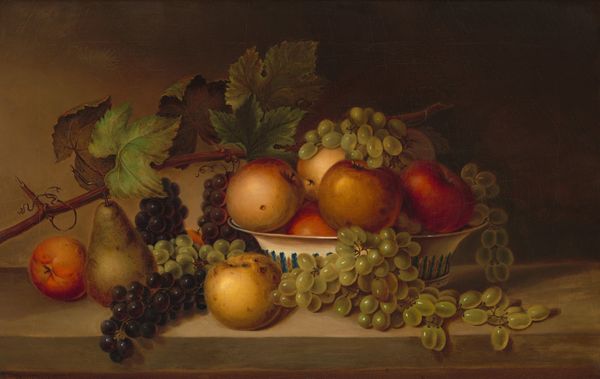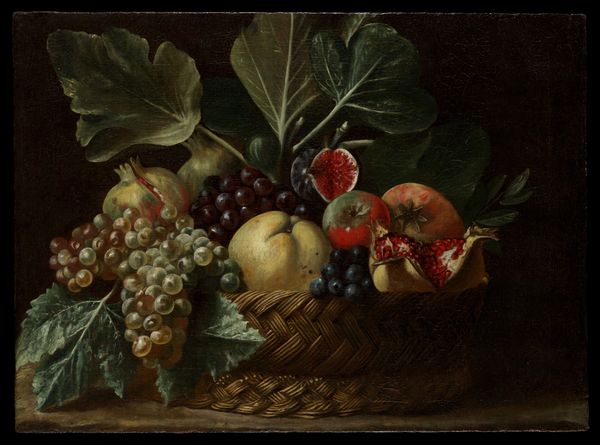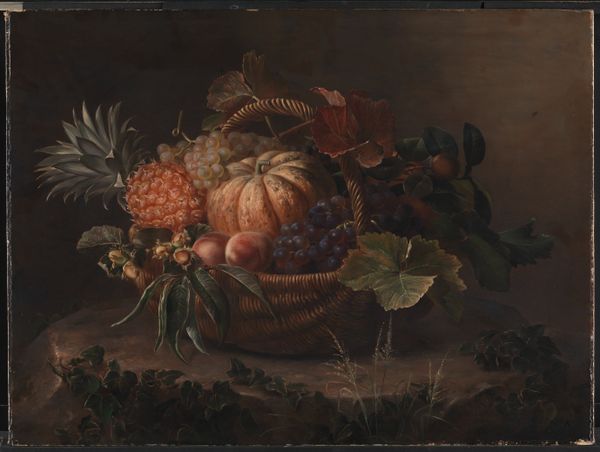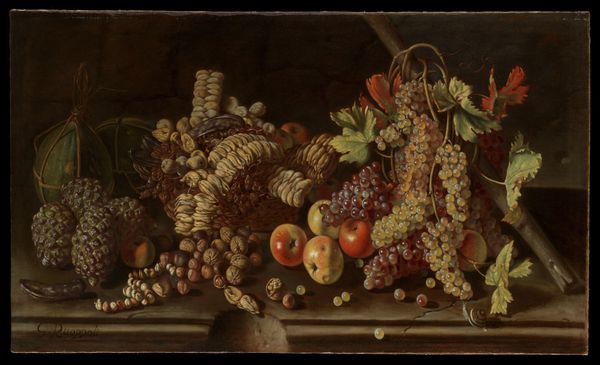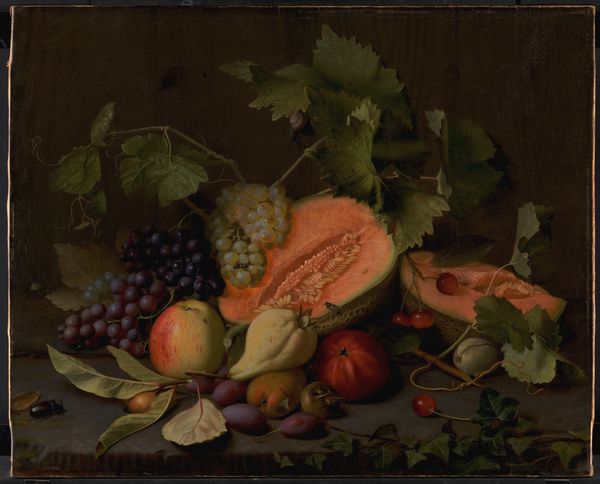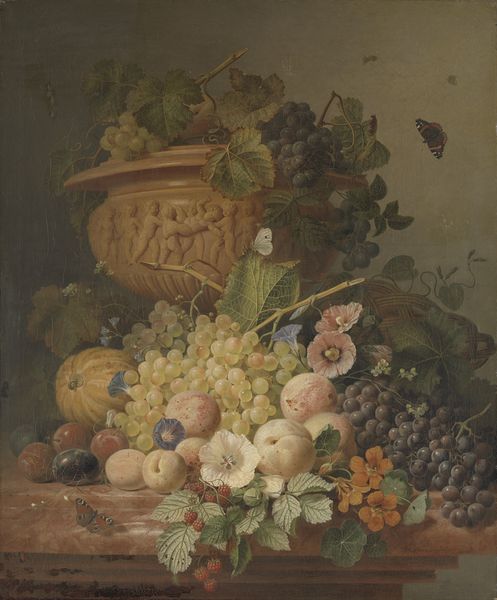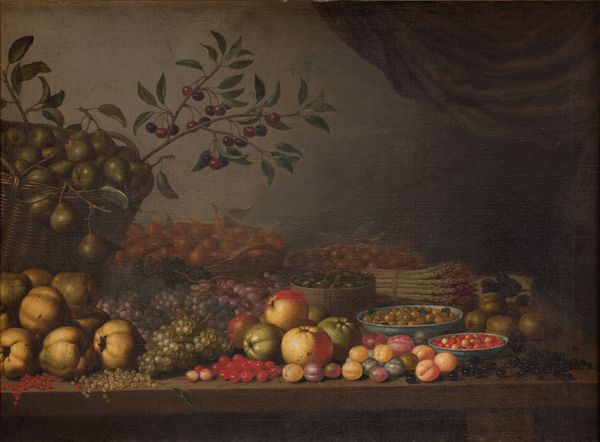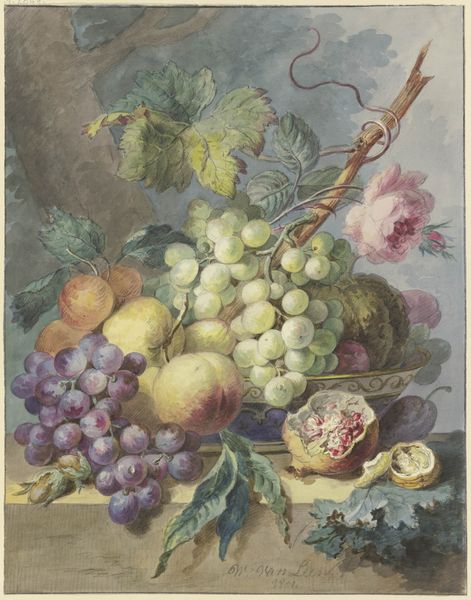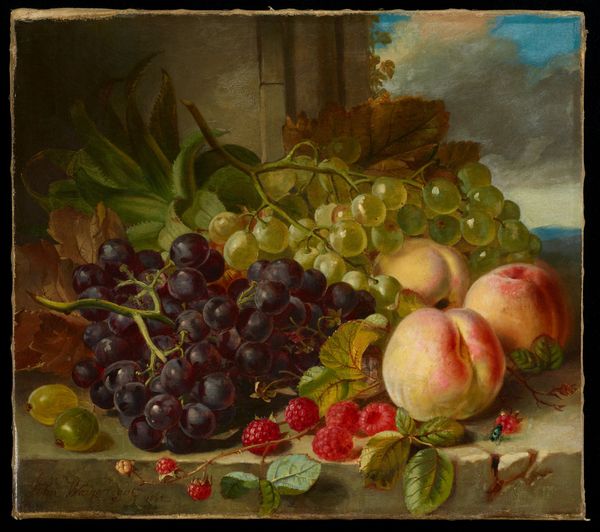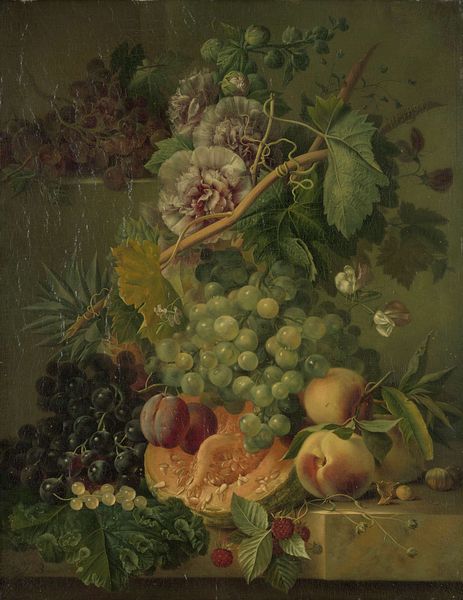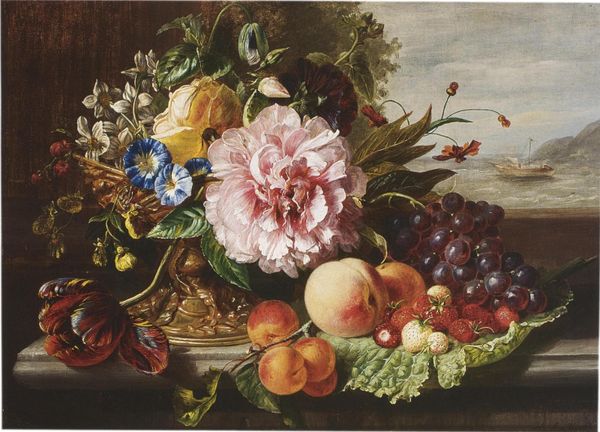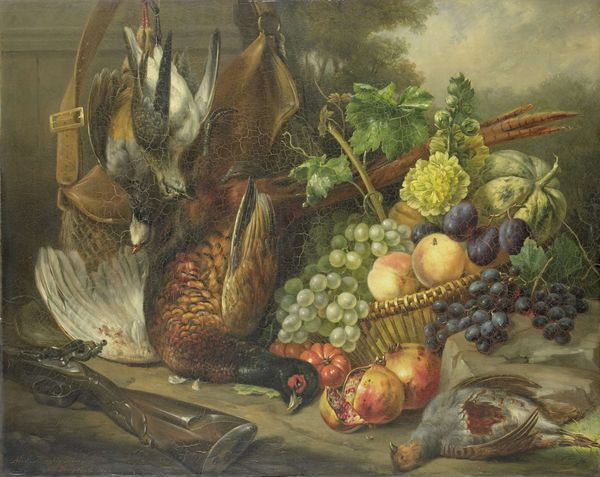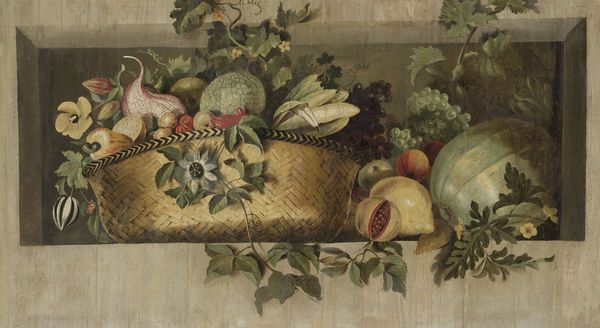
Dimensions: support: 711 x 914 mm frame: 980 x 1181 x 97 mm
Copyright: CC-BY-NC-ND 4.0 DEED, Photo: Tate
Editor: Here we have "Fruit ('The Summer Gift')" by George Lance. It's overflowing with fruits like grapes, a pineapple, a pumpkin, all arranged in a woven basket. It feels very abundant and…staged. How might this kind of abundance reflect the values of its time? Curator: That's a great observation. Consider the social context: During Lance’s time, elaborate still lifes like this weren't just about aesthetics. They were often displays of wealth, trade, and empire. These exotic fruits would have been quite rare and expensive. Who do you think would have been the audience for such a painting? Editor: Perhaps wealthy patrons, showing off their access to luxury goods? So, it's less about the fruit itself, and more about the statement it makes? Curator: Exactly! It’s about power, access, and the visual language of status. Editor: That's a really interesting perspective – I hadn’t thought about the political implications of fruit!
Comments
tate 9 months ago
⋮
http://www.tate.org.uk/art/artworks/lance-fruit-the-summer-gift-n00443
Join the conversation
Join millions of artists and users on Artera today and experience the ultimate creative platform.
tate 9 months ago
⋮
The collector Robert Vernon had bought his first Lance still life as early as 1826. He commissioned this work as part of the collection of British contemporary art which he gave to the nation in 1847. Lance exhibited the finished picture at the British Institution in 1848, with a quote from Shakespeare's Hamlet: 'The Fruit to this great Feast', using it as a witty allusion to the fact that his painting was a late addition to the feast of British art with which Vernon had enriched the nation. The esteem accorded to Lance gave still life painting a status it had never before achieved in this country. Gallery label, September 2004
